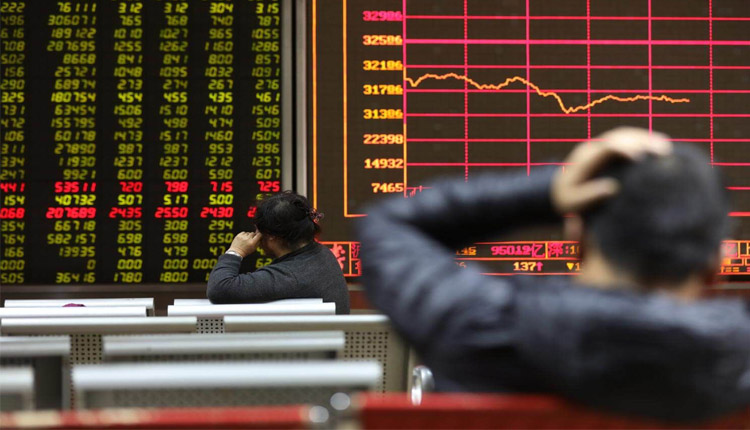Asian shares fell Tuesday afternoon following negative trade developments overnight as U.S. President Donald Trump said he will reinstate tariffs on U.S. steel and aluminum imports from Brazil and Argentina.
Shares in Australia led losses regionally, with the S&P/ASX 200 dropping more than 2 percent.
The Reserve Bank of Australia said Tuesday it was keeping its main cash rate at a record low of 0.75 percent, a move that was in line with expectations from most analysts in a Reuters poll. The Australian central bank has slashed rates three times since June this year.
“The easing of monetary policy this year is supporting employment and income growth in Australia and a return of inflation to the medium-term target range,” said RBA Governor Philip Lowe in a statement.
The Australian dollar changed hands at $0.6839 following the RBA’s announcement on its interest rate decision, after seeing a low of $0.6812 earlier.
Hong Kong’s Hang Seng index declined 0.15 percent by the afternoon, with shares of retailers such as Sa Sa and L’Occitane falling.
Data on Monday showed total retail sales volume for October in the Hong Kong dropped 26.2 percent year-on-year — its worst decline on record, according to a Reuters report. The embattled city has been rocked by months of anti-government protests.
Mainland shares Chinese shares also slipped, with the Shanghai composite down about 0.1 percent and Shenzhen component declining around 0.3 percent. The Shenzhen composite shed 0.322 percent.
The Nikkei 225 in Japan was 0.69 percent lower while the Topix index shed 0.51 percent. South Korea’s Kospi slipped 0.5 percent as shares of chipmaker SK Hynix dropped more than 1.5 percent.
Overall, the MSCI Asia ex-Japan index traded 0.41 percent lower.
Trade fears
Meanwhile, new trade tensions arose as U.S. President Donald Trump said he will restore tariffs on Brazil and Argentina metal imports.
Trump said in a tweet on Monday: “Brazil and Argentina have been presiding over a massive devaluation of their currencies. which is not good for our farmers. Therefore, effective immediately, I will restore the Tariffs on all Steel & Aluminum that is shipped into the U.S. from those countries.”
“Unfortunately it’s all to do with the election next year,” Colin Graham, chief investment officer of multi-asset solutions at Eastspring Investments, told CNBC’s “Squawk Box” on Tuesday. “This is about … gaining the votes and so he can secure a second term … as president.”
The U.S. Trade Representative said Monday that it could slap tariffs of up to 100 percent on certain French products, adding to global trade tensions.
Uncertainty also remained on the U.S.-China trade front. Trump said Monday China still wants to make a deal on trade, “but we’ll see what happens.”
His comments came following a heating up of tensions between the two economic powerhouses last week after Trump signed two pieces of legislation supporting protesters in Hong Kong, with a spokesman for the Chinese foreign ministry saying Friday that Beijing will take strong counter-measures against Washington.
“We expect that a narrow deal around trade can be achieved, and this would be one where no new tariffs or those planned but not implemented are postponed,” Kerry Craig, global market strategist at J.P. Morgan Asset Management, wrote in a note.
“While there is a clear economic incentive from both sides to do some sort of deal, the political desire to reach more than the minimum is weak, as the two side are still going to want to compete in areas such as technology,”
“With an outcome that is not clear, investors are better to focus on company fundamentals and Chinese domestic names which can be backed by structural shifts in the economy,” Craig said.
Currencies and oil
The U.S. dollar index, which tracks the greenback against a basket of its peers, was last at 97.91 after declining from highs above 98.3 yesterday.
The Japanese yen, often seen as a safe-haven currency in times of market uncertainty, traded at 109.17 per dollar after strengthening sharply from levels above 109.5 yesterday.
Oil prices rose in the afternoon of Asian trading hours, with international benchmark Brent crude futures up 0.18 percent to $61.03 per barrel. U.S. crude futures also advanced 0.3 percent to $56.13 per barrel.
Source: CNBC
